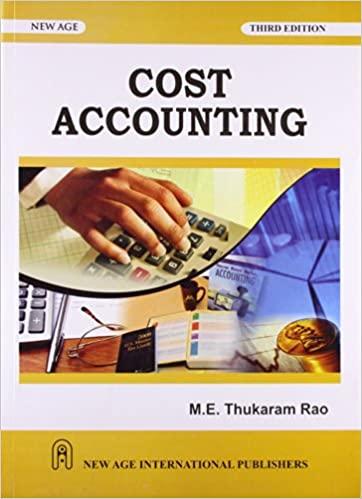Question
Directions To qualify for the acquisition method (ASC 805), the acquired entity must meet the definition of a business. Otherwise, the transaction is accounted for
Directions
To qualify for the acquisition method (ASC 805), the acquired entity must meet the definition of a business. Otherwise, the transaction is accounted for as an asset acquisition. When substantially all of the fair value of gross assets acquired is concentrated in a single asset (or a group of similar assets), the assets acquired would not present a business. To be considered a business, an acquisition must include an input and a substantive process that together significantly contribute to the ability to create outputs.
Asset acquisitions are measured and reported based on cost and reflect the following:
- No goodwill (or gain on bargain purchase) - excess consideration transferred is reallocated to identifiable assets based on relative fair values.
- Transaction costs (expensed in a business combination but capitalized in an asset acquisition).
- In-process research and development (capitalized in a business combination but expensed in an asset acquisition).
- Contingent consideration (recognized at fair value on the acquisition date in a business combination but generally recognized when resolved in an asset acquisition).
For example, when Celgene Corporation acquired all of the outstanding shares of Impact Biomedicines, Inc., in 2018, the acquisition was reported Celgenes 10-Q as follows:
The acquisition of impact was concentrated in one single identifiable asset and thus, for accounting purposes, we have concluded that the acquired assets do not meet the accounting definition of a business. The initial payment was allocated primarily to fedratinib [a cancer therapy], resulting in a $1.1 billion research and development asset acquisition expense
Because impact was not considered a business, Celgene expensed the acquired research and development costs in the acquisition period. Also, Celgene did not recognize in its financial statements the fair values of the contingent consideration elements at acquisition date.
Question
What potential accounting complexities (and costs) does a company avoid when it acquires another company that does not qualify as a business?
Step by Step Solution
There are 3 Steps involved in it
Step: 1

Get Instant Access to Expert-Tailored Solutions
See step-by-step solutions with expert insights and AI powered tools for academic success
Step: 2

Step: 3

Ace Your Homework with AI
Get the answers you need in no time with our AI-driven, step-by-step assistance
Get Started


